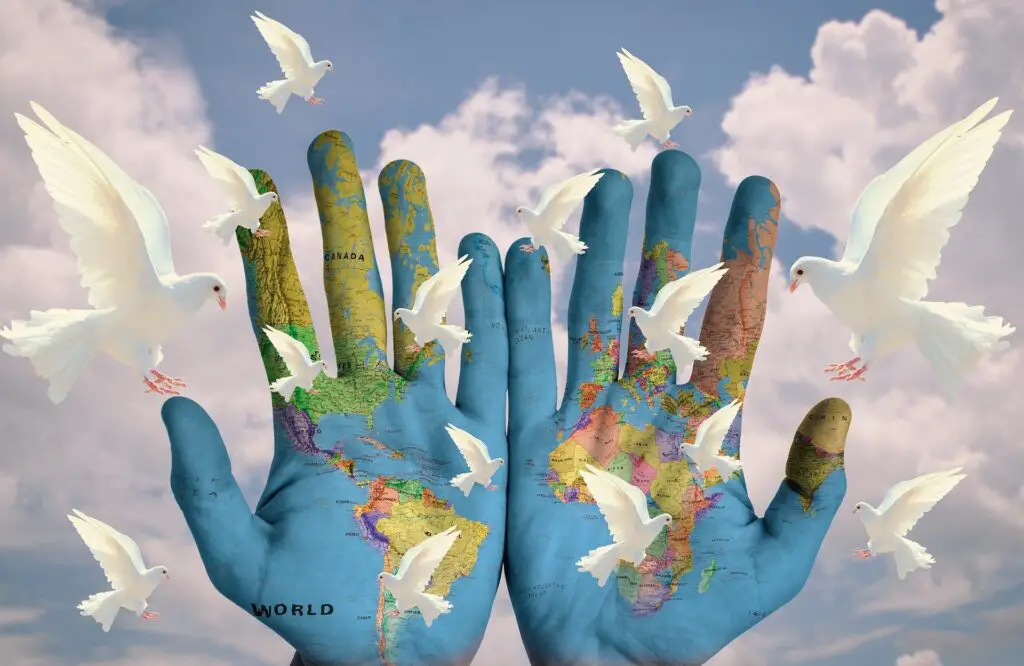We hope you enjoy our articles. Please note, we may collect a share of sales or other compensation from the links on this page. Thank you if you use our links, we really appreciate it!
On October 2, Mahatma Gandhi was born. On October 2, Jamal Khashoggi was killed. There is one common element though 149 years separated both the events. Gandhi and Khashoggi fought injustice through peaceful means. They were harbingers of nonviolent social change.
While Gandhi in the 20th century fought colonialism and sought to change the heart of the ruler through nonviolent resistance, Khashoggi in the 21st century sought to change the course of the Arab world through his journalism. While Gandhi emerged a popular leader for nonviolent social change in the 20th century, Khashoggi through his media activism drew a mass following for the cause.
Gandhi and Khashoggi were killed but they remained immortal as their actions evoked powerful and enduring forces of nonviolent social change. While Gandhi remained an inspiration for nonviolent struggle all over the world, the death of Khashoggi shook the world and many nations are still recovering from its aftereffects. The question, however, remains – what lessons we learn from the work and death of these peace agents, and how we use those lessons to change our world. Do we need more such deaths to realize that we live in a violent world?
2019 marked the 150th birth anniversary of Mahatma Gandhi. The United Nations declared October 2, the date of his birth, as the International Day of Non-Violence. While marking the beginning of the anniversary celebrations, the UN Secretary-General, Antonio Guterres, said, “at a time of protracted conflicts and complex challenges, Gandhi’s philosophy of non-violence remains an inspiration. At the United Nations, a world free of violence – and the resolution of differences through non-violent means – is at the core of our work.” Though the UN has remained a moral torchbearer, the policies of nations have been increasingly at odds with its founding principles. The death of Khashoggi is a testimony to the fact that the world has become more violent.
Gandhi was a critic of the principle of an eye of an eye and argued that such a principle would make the whole world blind. He preached and practiced the principle of nonviolence. He famously asserted when what we think, we say and we act are in harmony there is true peace. It needs more courage to be a ‘soldier of peace’ than to wield weapons and kill. He wrote in Young India, a weekly paper founded by him, on 6 October 1921, “As our movement is avowedly peaceful, it is much better even to drop sticks (as weapons). Soldiers of peace that we are, we should copy the ordinary soldier as little as possible whether in point of uniform or otherwise.”
During one of my visits to Gandhi Museum in Mumbai, also known as Mani Bhavan (Gandhi stayed in this house from 1917 to 1934 during his visits to the city), I came across this fitting tribute to the Mahatma from Albert Einstein, the famous scientist of the 20th century: “A leader of his people, unsupported by any outward authority; a politician whose success rests not upon craft or mastery of technical devices, but simply on the convincing power of his personality; a victorious fighter who has always scorned the use of force; a man of wisdom and humility, armed with resolve and inflexible consistency, who has devoted all his strength to the uplifting of his people and the betterment of their lot; a man who has confronted the brutality of Europe with the dignity of the simple human being, and thus at all times risen superior. Generations to come, it may be, will scarce believe that such a one as this ever in flesh and blood walked upon this earth.”
However, despite the popularity of Gandhi and his methods to fight injustice, inspiring numerous global protest movements including the recent Extinction Rebellion, his methods and practices and their relevance for international peace are not yet mainstreamed in sociocultural and political discourses. The 21st century issues such as the increase in the number of deadly weapons, intra-state conflicts, religious fundamentalism and terrorism, environmental crisis, and rise of authoritarianism call for a reassessment of Gandhian methods of conflict resolution.
Khashoggi followed the Gandhian path to fight against the authoritarian regime in Saudi Arabia but met a violent death. Though hypocrisy, particularly the disconnect between moral principles and politics – the hardcore realism, has apparently worked in international politics, the increasing number of violent incidents worldwide demonstrate the urgency of reexamining the dominant political paradigms. In this era of globalization and borderless world, an event in a small place affects the wide world. A moral perspective is necessary for the survival of human society and the world. Khashoggi, like Gandhi, believed in nonviolent social change. Even after death, their voices appeal to us and call us for action. Their voices echo in our heart and call us to play a transformational role in our society.
Gandhi and Khashoggi were soldiers of peace and laid down their lives for a peaceful social change. Both fought against religious fundamentalism. Religion in its true spirit invokes peace and love in the adherents, but as we see in this tumultuous world, religions have often been used for narrow goals. This is amply visible in Afghanistan, Pakistan, India, the Middle East, Iraq, and many other parts of the world. The rise of religious right parties and the suppression of saner voices like Khashoggi give ample evidence that we live in a dangerous time.
Gandhi and Khashoggi were not just isolated individuals living for themselves. They represented the saner voice of humanity and lived within us. They represented the universal human morality that stood against violence and oppression. Instead of confining these soldiers of peace to the streets and memorials, we will do better service to them by learning from their lives and defining our role for building a peaceful world. In the new year we must turn a leaf in the book of our life and commit us to the Gandhian path of peace and nonviolence.



